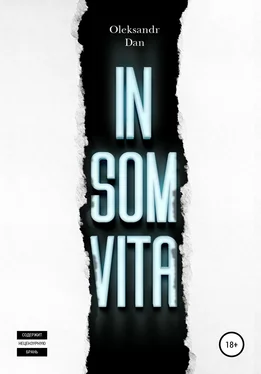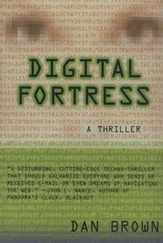If you gaze long enough into an abyss, the abyss will gaze back into you…
Friedrich Nietzsche
24 December 2011. 03:12 Tatras
A lightly dressed man, shivering from cold, stood on a precipice high over a mountain river. He seemed neither concerned nor scared at being just a half step from the edge of an abyss, since one false move could cost him his life. Rather, his gloomy silence was filled with despair and a readiness to step into the darkness filled with the roaring of the river below.
The black silhouette of the man was set sharply against the blue snow. He stared into the depths of the turbulent steam, as if looking for answers in this black vein of the mountain river.
Suddenly he spread his arms and raised his face to the sky. His lips whispered words of a prayer. Shutting his eyes, he waited for a sign from above. Perhaps a minute passed, but the heavens remained silent. The man sighed deeply, opened his eyes and stared at the winter sky with the look of someone doomed to die. No answer was forthcoming, he realized. The man smiled sadly and let his arms fall to his sides.
Clusters of bright, twinkling stars were scattered across the heavens. Here, at nearly three thousand meters above sea level, far from the bustle of the city, they seemed close enough to pick like strawberries. The silence of the icy night was broken only by the river noisily carrying its waters from somewhere near the peaks of the High Tatras.

Dense spruces covered by the thick blanket of untouched snow loomed over the land, tops aimed at those very stars, like the cover of an old Christmas card. The moonless night concealed the beauty of the mountain slopes, although the grandeur of the raw alpine nature bled through with the light of the stars. It seemed as though modern civilization had never touched this place, and that all these crests of snow and centuries-old spruces stood the same as they had two, three hundred years ago.
“If there is no answer, then the question was wrong,” the voice of the philosophy professor sounded in the man’s mind like a flashback. “To every question, there is only one correct answer, which is the truth.”
“What if there are several answers and they are all correct, and they are essentially versions of the truth?” he had asked, trying to argue with the professor.
“Remember, young man, there can be only one truth, and its versions are mistakes that generate untruth,” the professor had said without even looking at him.
But how do you find it, if the path towards this truth is darker than the blackness of this night? Where do you search, how do you determine the starting point, the thread that will eventually lead you to the truth?
To some, it might have appeared that the man was preparing to commit suicide and was just about to leap. The desire to take a single step and throw himself off the cliff into the abyss of the roaring river was checked only by the instinct of self-preservation, inherent only to a sober mind and the irresistible thirst for life. In a fit of despair, his consciousness tore fragments of the past out of his memory, as if proving the need to continue the search for answers to questions that were rending his heart.
“Could this be a solution? Could one step be all I need to get the answer,” he asked himself while peering into the inky blackness of the ravine.
From the darkness of the night, his memory once again recalled the lecture hall at the university and the voice of his philosophy professor: “What can this last step towards Azrael [1] Azrael ( Arabic عزرائيل – Azrāʾīl), or Malak al-Mawt ( Arabic ملك الموت —Angel of Death) is the Angel of Death in Islam and Judaism, who transports the souls of the dead to the other world.
and eternal slumber solve? Life in general is a directed movement from birth to death, avoided by nobody. The thought of ending one’s own life is driven by the desire to find some ultimate truth, but also doubt in achieving it. After all, the more you crave the ultimate, the more you realize its unattainability. It is these shifts between both extremes that lead to self-ruin.”
The professor paused, scanned the audience with unseeing eyes, took a book from his desk and, after shuffling through some pages, continued: "Sigmund Freud [2] Sigmund Freud ( German Sigmund Freud), born Sigismund Schlomo Freud; 6 May 1865, Freiburg, in the Austrian Empire (now Pribor, Czech Republic) – 23 September 1939, London, was an Austrian psychologist, psychiatrist and neurologist, the founder of psychoanalysis, a therapeutic field of psychology. He developed a methodology of free association and interpretation of dreams, which was the basis of psychoanalysis and formulated the concept of personality.
, the most renowned psychologist and psychiatrist of his time, even introduced the notion of the 'death drive' or death instincts, since he could not otherwise explain many of the things a human being is capable of inflicting on themselves. The desire for self-destruction, it seems, is in our nature. While all living things struggle to survive, some humans, on the contrary, invest extraordinary energy into ruining their lives completely, sometimes ending them."
The professor put the book aside and, crossing his hands across his chest, and after a small pause addressed the first row of students: “As to what pushes a certain individual to choose the path of self-destruction is a controversial issue that isn't fully understood yet. After all, human beings have been observed and studied closely throughout the millennia, yet they remain underexplored, and something that is difficult to explore and analyze.”
The bell ending the lecture rang and the sound of whispering filled the hall. The professor, however, quickly glanced at his watch and monotonously and firmly continued in a raised voice: “In the paradigm of human history, the circumstances that have led to suicide were as different as the people who chose this path, or, more specifically, such an end to their life. This suggests that there are as many solutions in the classification of the circumstances that lead to suicide as there are people.
"However, could such a step change the circumstances that pushed a person to end their life this way? Could this change those who influenced the circumstances that caused the person to make this decision? Doubtful, as people don’t change, for the most part. They can mimic others or pretend to be better than they are under certain circumstances, and they can conceal their dominant identity, but it will inevitably surface over time, as the deception is short-lived.
"Can this step towards self-destruction change the world around us? Unlikely.” The professor paused again and glanced at the audience. “Life, my dear, will continue as before, but the person unfortunately is no longer its active participant, but most likely a passive observer.”
The man remembered this lecture by the philosophy professor at Charles University in Prague, where he studied law, and often thought about it, seeking the answer to his question when his mind was pushing him towards suicide.
There was one circumstance, however, that nullified this whole theory of a causal relationship with suicide.
What if a person is an outside observer to his own life? What if this person, even without having taken this step, is observing himself from somewhere inside his subconscious, with no power to change anything, supplement or alter himself? What if this observation, regardless of the person’s desire, is hanging over his mind like the Sword of Damocles throughout his entire conscious life? What would this last step change then? And could it change anything at all?
Читать дальше













